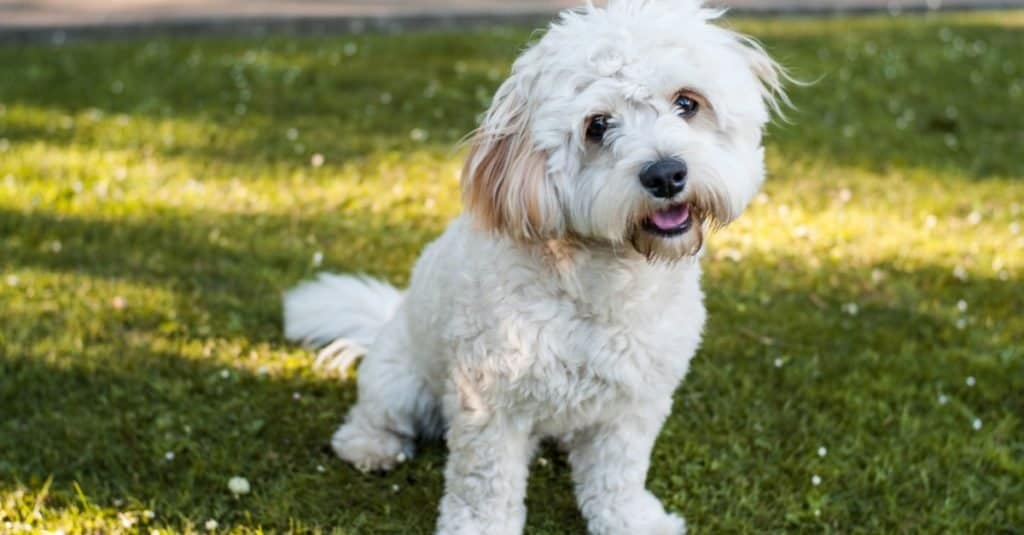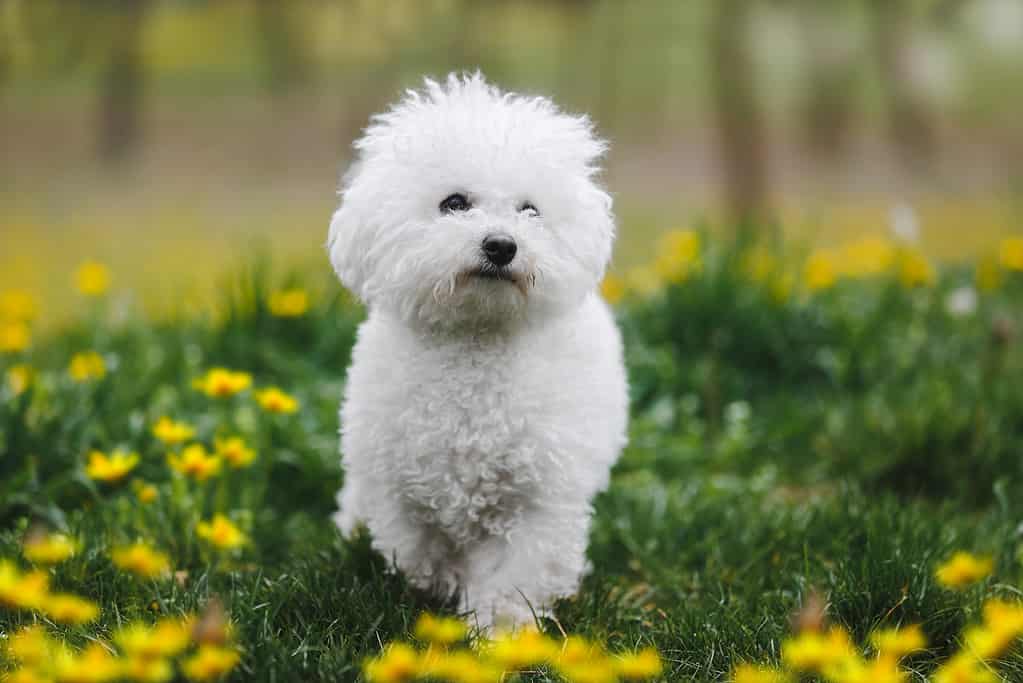There is not a huge difference between male and female Bichon Frise. Mostly, these dogs are pretty much the same between the genders. However, there are some very specific differences to keep in mind.
We’ll explore all of these differences below so you can choose whether a male or female would be the best option.
1. Male vs Female Bichon Frise: Size
There is a very small size difference between the males and females of this breed. These small dogs are often so small that the difference is extremely subtle. You shouldn’t use it as a deciding factor, though, as it is far too small to make much of a difference. Males may be slightly heavier and taller.
This variation can be noticeable when you have two different dogs next to each other. However, it probably won’t impact the dog’s appearance or temperament.
2. Male vs Female Bichon Frise: Temperament
Bichon Frises are friendly and affectionate. However, individuals can vary considerably. Some of these temperament differences may be related to gender. That said, it is important to realize that there isn’t strong scientific evidence to support this.
Female Bichon Frises are sometimes considered more independent and maybe more territorial. They tend to go through a lot of different hormonal changes throughout their life, though. Therefore, they may adjust their personality as their hormones go up and down.
Male Bichon Frises may be more easygoing and affectionate. However, that doesn’t mean they will all be affectionate or attention-seeking. Some of them may not be at all. Socialization and genetics matter a lot more than gender.
3. Male vs Female Bichon Frise: Dominance

To avoid aggression in both males and females, be sure to socialize your canine
early
.
©gabriel12/Shutterstock.com
Unneutered males may have a higher tendency to be dominant. They may mark around the house more, especially if they are exposed to unspayed females. They may have more assertive behaviors, as well.
That said, females may also be territorial towards other females. Males may be more territorial towards other males. Typically, dogs tend to be most assertive towards same-sex dogs.
Of course, dominance in dogs is very complex. Training and socialization are also essential. These dogs shouldn’t be aggressive with others when properly socialized.
4. Male vs Female Bichon Frise: Training
It is often thought that females are easier to train than males. They may calm down sooner, leading to a longer attention span. However, there is a huge variation here. Most of a dog’s trainability likely comes from how they are trained. Those who are trained early and use positive reinforcement methods tend to be better at training.
There is also a huge genetic potential. Those that come from quality breeders tend to be easier to train, as more effort is put into their temperament.
Female Bichon Frises may be easier to train if you’re particularly worried about trainability. However, these dogs aren’t the most trainable, to begin with. Therefore, if you’re really worried about trainability, you may want to look at a different breed altogether.
5. Male vs Female Bichon Frise: Social Behavior

We highly recommend training your canine early, as this can help prevent any behavioral problems that are associated with either breed.
©iStock.com/SStajic
The social behavior of dogs is affected by a huge range of factors. However, gender is one that you need to keep in mind. Female dogs tend to get along better with male dogs and vice versa.
However, socialization plays a huge role, too. A dog that is never introduced to other dogs may be fearful and unconfident. Therefore, they may act more aggressively or simply not know how to act, socially speaking. It can often be harder to socialize adult dogs, so we recommend starting earlier as quickly as possible.
Females tend to be a bit more social than males, especially when well-socialized. They may even be easier to socialize, according to some reports, especially when they are spayed. Males may be slightly more territorial, especially if left intact. Spaying or neutering your dog can make them much more social, either way.
6. Male vs Female Bichon Frise: Health
If unspayed or unneutered, these dogs will have different health issues. Females can get pregnant. Males cannot. Males can get certain cancers, while females can get other cancers. Of course, if your female is spayed, you eliminate their chance of uterine cancer.
Both genders are equally likely to have genetic conditions, allergies, and joint problems. Health concerns in Bichons are more closely related to genetic predispositions than gender-specific issues.
Regular health visits are important to catch any potential problems early. Furthermore, getting your dog spayed or neutered can also help prevent gender-related issues.
The photo featured at the top of this post is © Eudyptula/Shutterstock.com
Ready to discover the top 10 cutest dog breeds in the entire world?
How about the fastest dogs, the largest dogs and those that are -- quite frankly -- just the kindest dogs on the planet? Each day, AZ Animals sends out lists just like this to our thousands of email subscribers. And the best part? It's FREE. Join today by entering your email below.
Thank you for reading! Have some feedback for us? Contact the AZ Animals editorial team.







